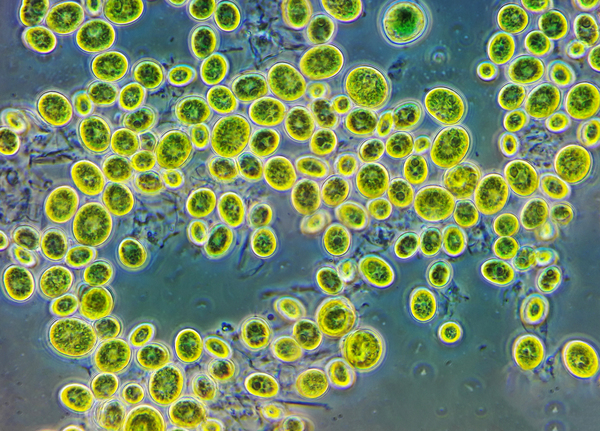Temperatures of 20°C Produce Increased Net Primary Production in Chlorella sp.
(1) Milton Academy, Milton, Massachusetts
https://doi.org/10.59720/19-107
Chlorella sp. are autotrophs that introduce stored energy into biological systems through photosynthesis. Net primary production (NPP) reflects the amount of energy converted to sugar bond energy in photosynthesis minus the amount of energy consumed by cellular respiration. Because carbon dioxide (CO2) acidifies water, the net CO2 production leads to a change in pH that reflects the NPP. Establishing a relationship between temperature and NPP could provide insights into maximizing the biological removal of CO2 from the atmosphere. In this experiment, the effect of temperature on the NPP of Chlorella sp. was measured as a function of ∆pH, which was determined using a standard curve of buffers of known pH versus absorbance. The ∆pH increased as the incubation temperatures increased towards 20°C, and then as the temperatures increased after 20°C, the ∆pH decreased, indicating that the NPP of the Chlorella sp. was maximized around 20°C. Around 20°C, the enzymes involved in photosynthesis, such as rubisco, may approach their optimal temperatures and thus be maximally efficient. As global warming is caused by excess CO2 in the atmosphere, Chlorella incubated at temperatures around 20°C would be maximally efficient at naturally removing CO2 through photosynthesis and could provide useful insights for new technologies to fight climate change.
This article has been tagged with: